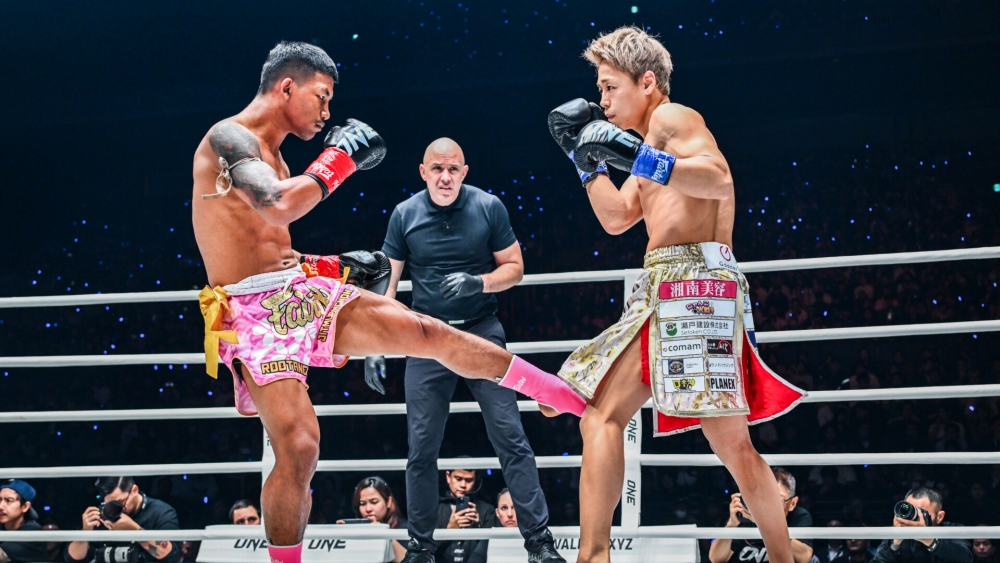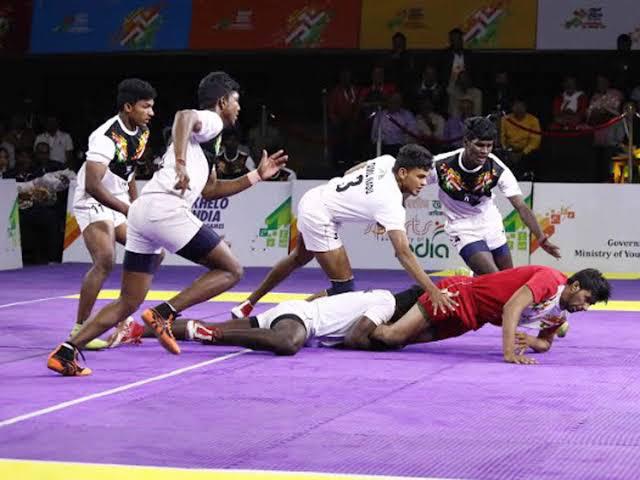
Fear is a natural part of competition, especially in combat sports like Brazilian Jiu-Jitsu (BJJ), Muay Thai, boxing, and mixed martial arts (MMA). Whether you’re a first-time white belt entering your local tournament or a seasoned fighter walking out under the bright lights, the pressure to perform, fear of losing, can create serious mental roadblocks.
The good news is that fear is manageable and even beneficial if understood and channeled properly. In this article, we’ll explore the psychology behind competition anxiety, offer strategies for physical and mental preparation, and share practical tips to help you compete with clarity and confidence!
The Psychology of Competition Anxiety
Fear and anxiety before a fight are rooted in your brain’s natural fight-or-flight response. This built-in system activates whenever you’re about to face a perceived threat, in this case, your opponent. You might feel your heart racing, palms sweating, or stomach churning.
Common fears include the fear of failure, fear of embarrassment, or fear of not performing well in front of others. Some fighters fear letting down their coaches or teammates. Others worry about the physical implications of combat. These feelings are completely normal. Even world champions experience nerves before stepping into the ring or onto the mat. The key difference is how they manage those emotions.
Understanding that fear is not a weakness but a signal from your body can change how you relate to it. Instead of trying to get rid of the nerves, try to accept them and work with them.
Physical Preparation
1) Consistent Training
Confidence starts with preparation. When you’ve trained consistently and focused on improving your skills, you’ll step into competition knowing you’ve done the work. Repetition builds muscle memory, and muscle memory builds trust in your body’s ability to react when it matters most. Regular training also builds discipline. When practice becomes part of your daily life, competition becomes just another extension of what you already do. That familiarity helps reduce anxiety and boost performance.
2) Focusing On Fight Endurance
Fatigue can be one of the most intimidating aspects of any fight. Nobody wants to gas out in the middle of a match. That’s why developing endurance should be a top priority during training. Push your cardio, spar under pressure, and simulate the intensity of competition. If you know your body can go the distance, you’ll feel more confident on fight day.
3) Peaking
Your physical preparation should be planned around peaking at the right time. Training hard is important, but so is knowing when to taper. In the final days leading up to the event, reduce volume while maintaining intensity. This helps ensure that your body feels fresh and responsive. Being physically ready allows your mind to relax, knowing that you’ve prepared smartly and with purpose.
Mental Preparation
1) Know That You’re Not Alone
One of the most comforting truths in combat sports is that everyone feels fear before competition. Whether you’re a beginner or a black belt, anxiety shows up. Talking to teammates or coaches about their experiences can help normalize these feelings. Knowing you’re not alone in your struggle eases the burden and reminds you that it’s okay to be nervous.
2) Confronting Your Fears
Avoiding competition because of fear only strengthens that fear. The real growth comes from facing it head-on. Stepping up to compete, even when you’re scared, builds mental toughness. Over time, the intensity of your fear may decrease—not because it’s gone, but because you’ve learned to operate in spite of it.
Each time you challenge yourself in this way, you gain more than just fight experience. You gain resilience, confidence, and a stronger belief in your ability to overcome discomfort.
3) Growth Through Competition
Every competition is an opportunity to learn, regardless of the result. You learn how you react under pressure, how well your game holds up against resistance, and what areas you need to improve. Win or lose, you’re collecting valuable data to bring back to the gym.
When you shift your mindset from outcome-focused to growth-focused, the fear of failure lessens. Instead of obsessing over medals or results, you begin to value the process—and that leads to long-term success.
4) Putting It All On The Line
Stepping into the ring, cage, or onto the mat is an act of courage. You’re choosing to test your abilities in public, often in front of strangers, coaches, and peers. That vulnerability is what makes combat sports so powerful. You’re not just fighting an opponent. You’re battling your own doubts, insecurities, and limits.
Once you accept this, fear loses some of its power. You’re not running from the challenge; you’re embracing it. You’re choosing growth, discomfort, and accountability over safety and comfort, and that alone is a victory.
Practical Tips Leading To Competition
Develop a simple pre-fight routine that helps you feel grounded. This might include a specific warm-up, listening to music, or visualizing your performance. Familiar habits can calm your nerves and create a sense of control.
Practice breath control. Deep, steady breathing helps regulate your nervous system and prevent panic. Try inhaling slowly for four seconds, holding for four, and exhaling for four. This technique can be done while waiting to compete or during breaks in your match.
Focus on the present. Don’t let your mind spiral into what-ifs or worst-case scenarios. Anchor yourself in what you can control—your preparation, your effort, and your mindset in the moment.
Thinking Long Term
Your martial arts journey spans years, not just one tournament or fight. No single match defines you. Growth in combat sports is about showing up consistently, learning from setbacks, and becoming a more skilled and resilient athlete over time.
When you think long term, fear becomes just one part of the process—not something to avoid, but something to work through and learn from.
Conclusion
Fear in competition is normal, even necessary. It’s a sign that you care and that you’re about to do something meaningful. But it doesn’t have to control you. With the right preparation, mindset, and support, you can manage your fear and use it to sharpen your focus and fuel your performance.
Whether you’re a beginner stepping into your first match or a veteran preparing for your next big test, remember this: real courage isn’t the absence of fear—it’s doing the hard thing even when fear is present. Keep showing up. That’s how champions are made.
You may also like:
From Combat To Collaboration: How Martial Arts Principles Enhance Team Activities
Everyone has a natural fighting style. Some instinctively look to bombard opponents with volume, while others prefer a more cautious approach. Some people feel more comfortable throwing strikes at attackers, while others prefer to wrestle…
Ask any coach or seasoned fighter, and they’ll tell you the same thing: your punches are only as effective as your footwork. Most people think boxing is all about fast jabs and powerful knockouts. While…
Your environment significantly influences what works and what doesn’t in boxing. Even something that might seem insignificant to casual boxing fans, like the size of a boxing ring, influences which tactics work best. Smaller rings…
If you’ve ever watched a fight and thought, “Wow, this guy never backs off?” You’ve witnessed pressure fighting in action. Pressure fighting in martial arts is the art of making your opponent miserable with constant…
Hard sparring sessions in martial arts can make you feel like you’ve just walked through a brick wall. You’ve given it your all, and your muscles are sending you a strongly worded memo saying that…
Nothing feels as rewarding as landing a well-executed strike that finishes the match or secures a win. The knockout is the crème de la crème of combat sports like mixed martial arts (MMA), Muay Thai,…
Mixed martial arts (MMA) is one of the fastest-growing sports today. MMA attracts a wide spectrum of athletes and viewers from all walks of life. From the likes of Mark Zuckerberg to your regular weekend…
Your isometric strength plays a role in martial arts like Brazilian Jiu-Jitsu, Wrestling, Boxing, and Muay Thai, whether you realize this or not. Anything that requires holding a position while fighting against tension and other…
Getting older doesn’t mean you have to hang up your gloves or retire your Gi in martial arts. While aging is inevitable, there are ways to keep dominating the mat, ring, and cage as your…
As children grow, developing life skills like emotional resilience is essential to help them navigate life’s challenges. While these skills can be learned through experience and guidance, activities like martial arts offer a powerful and…
The focus, strategy, and grit you learn while training martial arts like Muay Thai, Brazilian Jiu-Jitsu (BJJ), and Boxing carry over into your professional life when deadlines are looming, co-workers call in sick, and your…
Brazilian Jiu-Jitsu is a martial art that offers many ways to finish a match. A common yet practical way to do this is to attack the opponent’s arm with a variety of arm locks. In…













